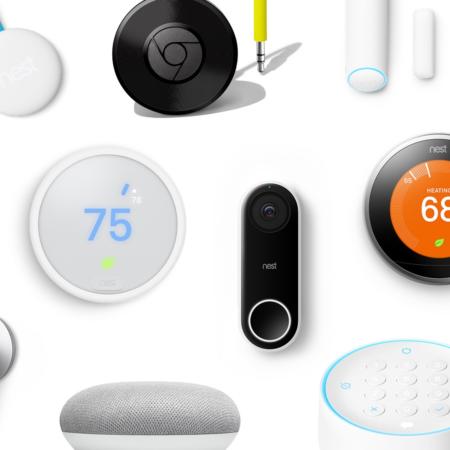Ever since Google accidentally omitted a Nest security device’s built-in microphone, the company has faced major backlash.
Recently, Google tried to put some concerns to rest by confirming which Nest products have microphones, as Business Insider reported.
Google Nest features a wide range of smart home products, including doorbells, an alarm system, and even a thermostat. For worried customers, instead of providing security, those devices became potential hosts of more hidden microphones.
California Senator Kamala Harris told Business Insider, “Americans shouldn’t have to fear that the products in their home could be spying on them.”
Now, Google has confirmed the following products all contain microphones: Nest Guard Hub, Nest Protect (second-generation model), Nest Cam IQ outdoor, Nest Cam IQ indoor, Nest Cam Outdoor, Nest Cam Indoor, and Nest Hello.
However, none of these microphones are a secret. Google told Business Insider, “These were also clearly called out by the company from the beginning.”
What might surprise people the most is learning Google’s Nest Protect contains a microphone because — if you aren’t familiar with the product — it’s a smoke and carbon monoxide alarm. The microphone has been detailed in Nest Protect’s spec sheets, but why does it even exist?
According to the support page, it’s for routine alarm checks. Nest Protect automatically runs a “sound check” once a month, so the microphone lets it detect if its speakers and horn are working. In addition, users can run a manual “safety checkup” that will also enable the microphone.
For both of those situations, the microphone is only on for a few seconds. Google also noted, “The audio from Sound Check and Safety Checkup desn’t leave your Nest Protect and isn’t transmitted to Nest servers.”
Google is possibly rushing to make these clarifications because a privacy advocacy group recently submitted a letter to the Federal Trade Commission (FTC). In the letter, the Electronic Privacy Information Center (EPIC) cited consumer risks and asked the FTC to “commence an enforcement action against Google with the aim of divesting the company of Nest.”
The FTC has let Google off easy before after the company–who admitted its Street View cars “accidentally” collected personal data through WiFi networks in 2010–made “assurances” that it’d no longer collect this data.
With rising concern around privacy, Google may be in for more fighting.

